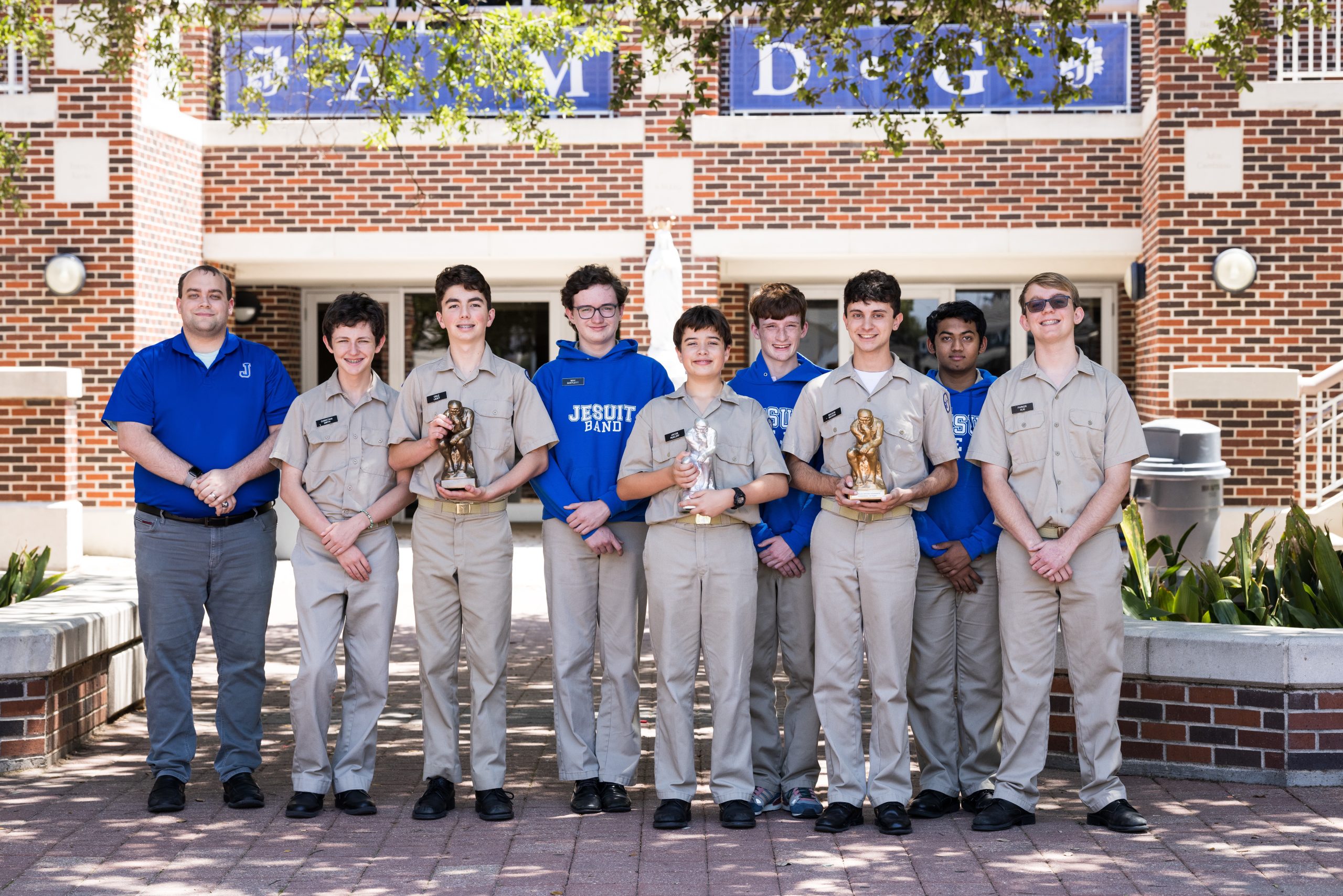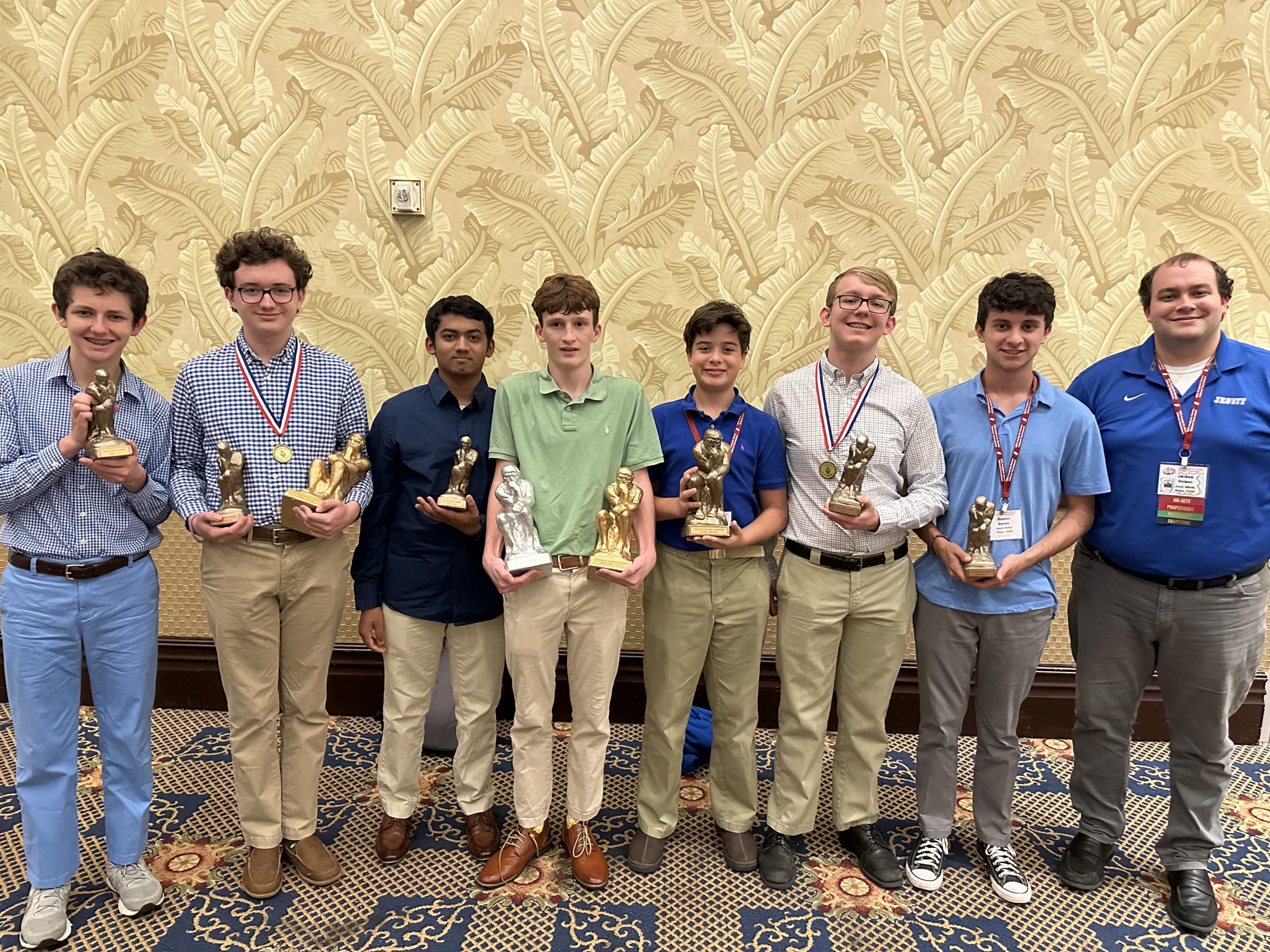Blue Jays Accrue Accolades at National Academic Games Tournament

On April 21, the Academic Games team traveled to Orlando to complete in the national tournament put on by the Academic Games Leagues of America. Jesuit’s senior division team of Parker Alig, Max Bartlett, Mason Becker, Wade Rogers, and Christian Smith finished in third place in the game of On-Sets and fourth in Current Events. The team’s performance culminated in an overall sixth place sweepstakes finish. Pre-freshman Cruz Ledet competed on a conglomerate team with other New Orleans students and placed second in Equations. Pre-freshman Jacob Rudloff and junior Dylan Patel also earned spots in the tournament and competed enthusiastically.
Two Blue Jays won national titles individually. Bartlett won the mathematics competition of On-Sets, and Rogers won the social studies game of Current Events. Rogers’ impressive performance in all the games culminated in a second-place finish in the overall sweepstakes competition.


The Academic Games Leagues of America is a non-profit organization which encourages and conducts academic competitions at local and national levels. The local league—the New Orleans Academic Games League—plays four of the seven national games: Equations, ON-SETS, Propaganda, Presidents. Propaganda and Equations are played in the fall; Presidents and On-Sets in the spring. In addition, Jesuit chooses to compete in Current Events on their own.

A little about each game…
Presidents is a social studies game. Players learn how presidents developed personally and professionally, how they reacted to or changed the times in which they served, what types of families they came from, and how they were affected by the political climate surrounding them. Players also learn about other major events that may have happened during a presidential term. They learn to assimilate all of these different facts into a unified whole for a better understanding of how the United States government has worked in different historical times.
On-Sets is a mathematics game. This game is very valuable in teaching about spatial relationships. The mathematical content of the game is Set Theory. Players learn to create and describe sets of colored objects using Union, Intersection, Set Difference, Set Complement, the Universe, and the Null Set. Players are challenged to use their mathematical knowledge and skills in increasingly creative ways and usually learn more from applying their knowledge in the competition than they do in their normal classroom studies.
Propaganda is a language arts game. Players learn to recognize techniques of persuasion that are often used by advertisers, politicians, editorial writers, and in normal human interaction. Players on each team spend time studying together and exchanging ideas and notes as part of their learning experience. Actual play of the game is simple. A central moderator reads one or more sentences, and the player must decide which—if any—technique of propaganda is used.
Equations is a mathematics game. It is often referred to as The Game of Creative Mathematics. All grade levels play with the same set of procedural rules, but each division level of competition introduces increasingly more difficult mathematical concepts for the players to use. Players are challenged to use their mathematical knowledge and ability and to develop new skills in progressively more competitive ways. Players usually learn more from applying their knowledge in the competition than they do in their normal classroom studies. Students who compete in Equations are often times more prepared to do well in their classroom math classes than their peers.
Current Events is a social studies game. While preparing for and playing Current Events, players learn about the major political and cultural events of the most recent calendar year. They learn to be aware of what is happening to them, their country, and their world. The knowledge gained from playing Current Events leads to more informed and responsible future citizens.